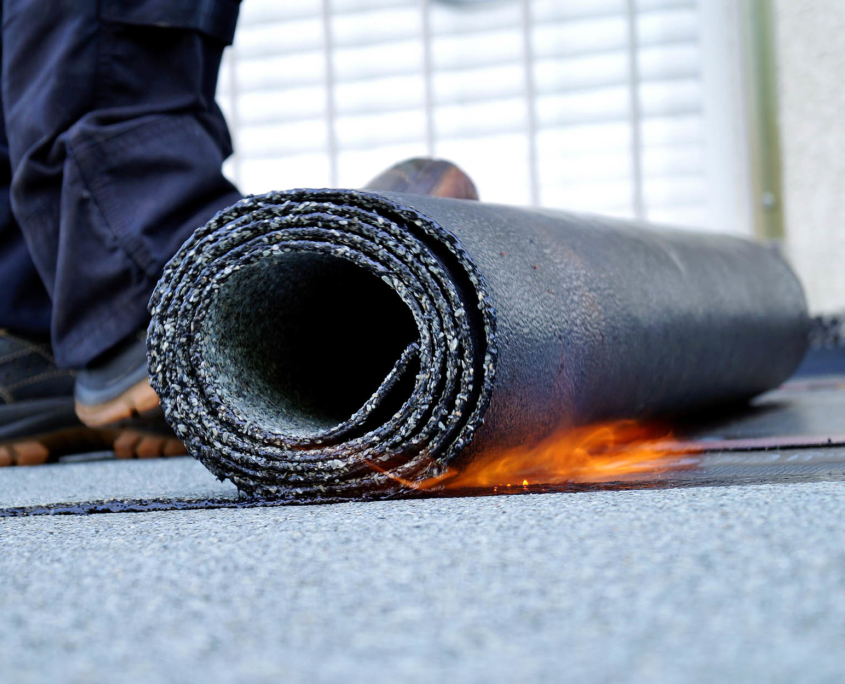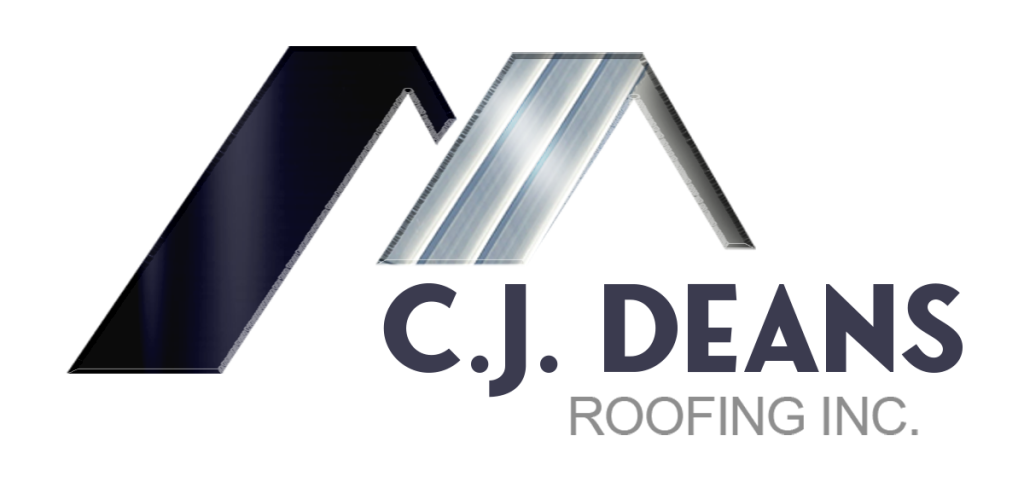Modified Bitumen Roofing In Raleigh, NC
C.J. Deans Roofing
Modified Bitumen Roofing In Raleigh, NC
For many modern commercial properties in the United States, flat roofs have become an incredibly popular preference. Because of this, modified bitumen roofing systems for flat roofs have become a superb roofing option. If you are looking for a durable and highly adaptable adhesive roof option for your commercial roof, then a modified bitumen roof won’t disappoint.
Improvising Modified Bitumen Roofing For Modern Commercial Use
It was in the mid-1960s that modified bitumen was first used in Europe commercially. Built-up roofing (BUR), a sophisticated system of alternating layers of asphalt and fabric with a top layer of gravel, was the standard roofing technique on most commercial structures at the time.
Although BUR has been proven and tested, it was heavy, expensive to install, difficult to repair, and being unable to endure extreme temperatures. Hence, the roofing process was further developed and simplified to overcome some of the most common concerns with BUR by combining bitumen with polymers and fiberglass into a single membrane which resulted in the modern modified bitumen we have today.
After the successful attempt. Modified bitumen proved to be easier to apply while offering superior protection to BUR systems, even in extremely cold temperatures. Modified bitumen roofing is now widely used in the United States, replacing BUR and becoming one of the most durable roofing materials available.
Why Is Modified Bitumen Roofing An Excellent Commercial Roofing Choice?
Whether you’re designing and constructing a new commercial building or renovating an existing one, roofing should be a top priority. The roofing materials and methods you select will have an impact on more than just your construction budget. They will also have an impact on your building’s maintenance budget, and they may significantly affect other costs as well, due to liabilities incurred during installation.
Many commercial building owners and contractors who provide roofing for flat or shallow-angled roofs are opting for membrane roofing over traditional asphalt roofing systems. If you’re in the market for a new roof, you’re probably familiar with the three basic types of membrane roofing: synthetic rubber, thermoplastic, and elastomeric.

The Framework: MB Roof Components
Insulation
It supplies thermal resistance that contributes to the roofing system’s temperature stability.
Modified Bitumen Seet Membranes
The sheet membranes are composed of copolymer with polyester or fiberglass reinforcement.
Modified Base Sheets
These fiberglass sheets have been lightly renovated and are coated with remade bitumen asphalt.
Adhesive
The adhesive serves as a waterproofing agent.
Surfacing
The roof is equipped with this feature, which gives it superior weather resistance as well as UV protection.
APP vs SBS Modified Bitumen Roofing
Modified bitumen roofing implies mixing modifiers with ordinary roofing asphalt during the reinforcement process by either polyester or fiberglass. There are two options:
APP or Atactic Polypropylene Bitumen
This modified bitumen roofing uses a thermostatic polymer that gives asphalt a plastic-like property, resulting in a plasticized finish. As a result, APP-modified bitumen can give added support by making your roof highly water-resistant and shielded against UV rays.
The roofing option is available in sheets or rolls and is specially fashioned to give uniform thickness and artistic components evenly laid out and placed onto the roof membrane.
This modified bitumen roof is common on smaller commercial buildings with flat roofs since APP is easy to melt.
Styrene-Butadiene-Styrene
To make a synthetic rubber modification, styrene-butadiene-styrene is mixed with bitumen. In contrast to APP, SBS does not in any way melt the same. Rather, it produces a sticky type of melt that increases as it melts more. Meaning, the fluid flow quality that APP possesses is absent in SBS, resulting in less heat during installation. Thus, the SBS-modified bitumen roof is faster to install compared to APP.
SBS-bitumen roofing is more pliable in contrast to APP plastic due to its rubber nature. Its pliable nature allows it to recover from temperature variations, expansion and contraction, and wind.
Modified bitumen has the upper hand over other roofing systems because of this unique variation of components.
Advantages For Commercial Use
Long-lasting
The modified bitumen roof is tear-resistant and safely controls any foot traffic due to the mixture and fiberglass reinforcement layers. For this reason, in contrast to other roofing systems, the modified bitumen roof is more long-lasting.
Availability
You can select from an extensive range of colors when using a modified bitumen roofing system. The granules on the cap sheets can be used to match any shingle color due to their adaptability.
Heat & UV Resistance
Modified bitumen is popular for its ability to reflect heat. The reflective feature gives protection against the sun’s radiation. If the most reflective coatings or the colors used are lighter, the energy value is immensely decreased.
Waterproof & Leak-free
Flat roofing systems are vulnerable to leakage, though, with the coherent nature of the bitumen roofing, the probability of leakage happening is low.
Protection Against Natural Phenomena
To oppose any harsh weather exposure and other dangerous environmental elements, a modified bitumen roof consists of a five-layer composition.
Resource Efficiency
Modified bitumen can be recycled in various cases. Roofing materials, in other words, can be reused to lessen waste. In that way, the carbon footprint will be minimized.
Simple to Install and Restore
It’s convenient to install and restore a modified bitumen roof. Modified bitumen roofing comes in 36-foot-long, 3-foot-wide rolled sheets that can be easily rolled onto the base sheet membrane. Bitumen patches can be used to repair the damaged area effectively and rapidly in case of damage.
As it is resistant to UV rays and water, has low maintenance, convenient to install, and is extremely long-lasting, a commercial modified bitumen roof gives your commercial property high-quality protection. All these components contribute to making modified bitumen roofing systems an exceptional roofing solution.

